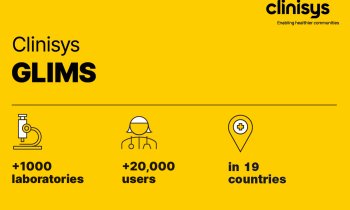The role of hospital management consultants
‘Public hospitals are not yet acknowledging the necessity of engaging management consultants in the same way as private institutions. Management and organisational consultancy is particularly important in hospitals as it is not just undertaken for the benefit of staff but also the benefit of the patients’’ explains Verena Krassnitzer, Vienna-based management consultant and supervisor, organiser and coordinator of a pool of supervisors for temporary assignments to the Vienna Hospital Association KAV. Ronald Bäcker reports

With 12 hospitals, 11 geriatric care centres and a care home, KAV is one of the largest hospital associations in Europe. Management consultancy aims to analyse organisational processes, communication structures, decision-making and power structures in organisations in cooperation with the employees and, where necessary, to change them. Often it is not possible to draw a clear line between consultancy, supervision and coaching. ‘In many cases we are commissioned to carry out a supervisory function in a hospital department when in fact all we do is management consultancy,’ she points out.
Typical situations where management consultancy is required are in the implementation of new processes or merging teams or departments. For example, in a psychiatric department in a hospital in Lower Austria, the consultant and the inhouse hospital team developed and implemented a new daily routine, a new form of team briefing and a new structure of cooperation with external institutions. Management consultants can also help with severe and persistent conflicts within teams. ‘High sickness rates and large staff turnover, the results of bullying or burn-out, point towards something not being quite right on a ward or in a department,’ Verena Krassnitzer points out.
A large potential for conflict is inherent in the system of collegial leadership, typical in Austria as well as Germany. In this, there are separate hierarchies for doctors and nurses; the medical head of a department therefore cannot give instructions to nurses because they report to the respective charge nurse and nursing directorate. ‘Cooperation between doctors and nurses is therefore often less than perfect,’ she points out. For this and other reasons she believes that working with executives is particularly important. On the one hand, management consultancy can only work if executives believe in it: ‘If the medical head of a department or the charge nurse says “This is humbug” then consultancy becomes difficult. The leadership team has to be sat around a table so that mutual trust can be established, otherwise it’s not possible to work together successfully.’ On the other hand, in hospitals more than in other organisations, hierarchy is based on expertise, meaning it is not leadership skills that determine whether someone is appointed to a leadership position, but professional competence. ‘If a doctor who is excellent from a professional perspective takes up a leadership position, he or she suddenly has to deal with issues that have nothing to do with his/her professional expertise,’ the consultant emphasises.
‘Being in a leadership position means making decisions, communicating with others, thinking strategically. A leader must be rock solid, should resonate with the staff and must be part of a team as well as its counterpart.’ Vienna recently announced a comprehensive hospital reform to be completed by 2030. Five of the city’s 12 hospitals are to be closed, with many departments moving over to other existing hospitals or into the new Vienna North Hospital, opening in 2015. The remaining hospitals are to be transformed into centres of excellence for specific medical specialties and harmonised with one another. With this in mind, Verena Krassnitzer predicts: ‘There will be a big demand for management consultancy.’
31.08.2011










